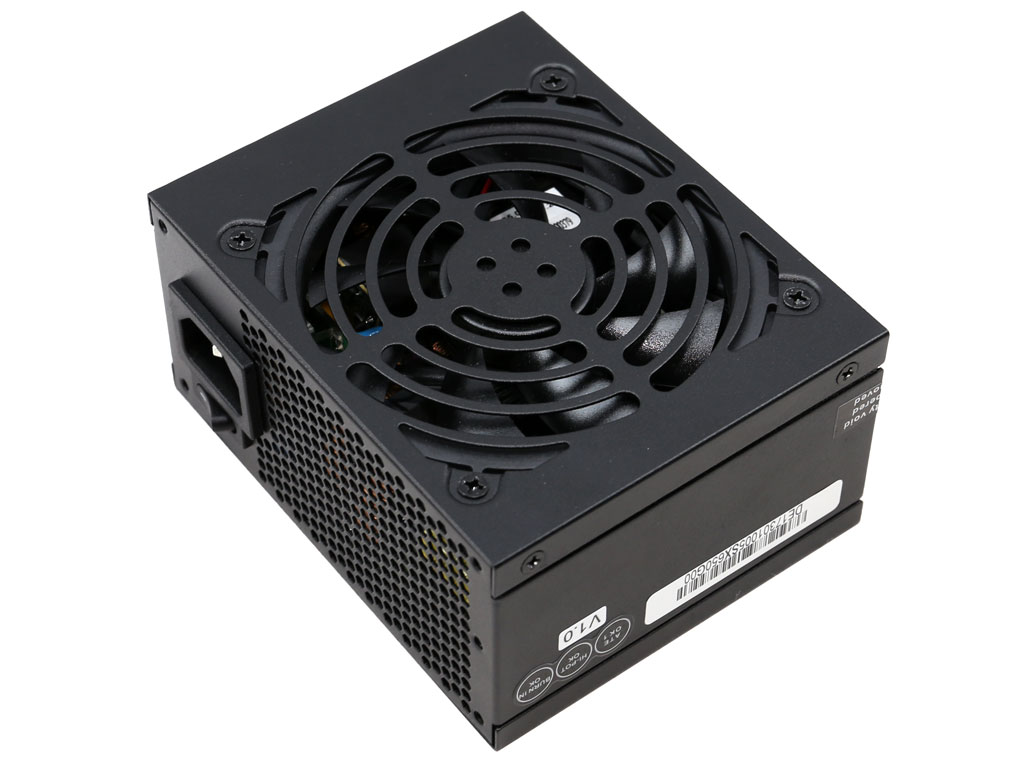Tom's Hardware Verdict
If you need an SFX-based PSU with four PCIe connectors and enough power output to handle a couple of high-end graphics cards, then SilverStone's SX650-G is ideal. It doesn't demonstrate ground-breaking performance, but still gets the job done quietly and efficiently.
Pros
- +
80 PLUS Gold efficiency helps reduce waste heat
- +
Quiet under light and moderate loads
- +
Fully modular
- +
4x PCIe connectors
- +
FDB fan
Cons
- -
High price
- -
Low efficiency under very light loads
- -
Sky-high OPP and OCP on the 3.3V and 5V rails
- -
Over-temperature protection doesn't appear functional
- -
The fan profile could be tuned better
- -
85°C bulk cap
Why you can trust Tom's Hardware
Features & Specifications
The SX650-G is a small form factor power supply that crams tons of capacity into its SFX chassis. SilverStone has lots of experience building compact, powerful PSUs, and this particular model wields four PCIe connectors able to support two high-end graphics cards. Despite its diminutive dimensions, the SX650-G sports a 92mm fan, which is as large as an SFX enclosure accommodates. This keeps it as quiet as possible under light and moderate loads. Of course, once you really tax the SX650-G, its fan has to spin up to keep the internals cool. At that point, it gets pretty loud.
A three-year warranty is surprisingly short compared to the increasingly long guarantees we're used to seeing. The SX650-G's main competitor, Corsair's SF600, boasts a seven-year warranty. Although that PSU is rated for 50W-lower capacity, it serves up high performance and a semi-passive mode for noise-free operation under light loads. The SF600's most glaring weakness next to the SX650-G are its two PCIe connectors. By doubling that number, SilverStone better caters to enthusiast-oriented hardware configurations.
SilverStone sells a number of SFX-based power supplies: four are fully modular, while three feature fixed cables (but are also more affordable). The SX650-G is one of the modular ones. It's also the most potent model with 80 PLUS Gold and ETA-A efficiency certifications. Inside, you'll find Japanese capacitors exclusively. All of the bundled cables are flat and built with black wires.
Specifications
| Manufacturer (OEM) | High Power |
|---|---|
| Max. DC Output | 650W |
| Efficiency | 80 PLUS Gold, ETA-A (88-91%) |
| Noise | LAMBDA-S+ (35-40 dB[A]) |
| Modular | ✓ (Fully) |
| Intel C6/C7 Power State Support | ✓ |
| Operating Temperature (Continuous Full Load) | 0 - 40°C |
| Over-Voltage Protection | ✓ |
| Under-Voltage Protection | ✓ |
| Over-Power Protection | ✓ |
| Over-Current (+12V) Protection | ✓ |
| Over-Temperature Protection | ✓ |
| Short Circuit Protection | ✓ |
| Surge Protection | ✓ |
| Inrush Current Protection | ✓ |
| Fan Failure Protection | ✗ |
| No Load Operation | ✓ |
| Cooling | 92mm fluid dynamic bearing Fan (S0921512HB) |
| Semi-Passive Operation | ✗ |
| Dimensions (W x H x D) | 125 x 63.5 x 100mm |
| Weight | 0.923 kg (2.035 lb) |
| Form Factor | ATX12V v2.4, EPS 2.92 |
| Warranty | 3 years |
The use of 92mm fans is preferable in the world of SFX PSUs; they facilitate the lowest noise output possible, particularly under demanding loads where thermal output is at its highest. Of course, platform efficiency also plays a major role in the equation, since increased efficiency helps minimize waste heat.
According to SilverStone, the SX650-G includes all of the protection features we'd expect to find. However, we weren't able to trigger over-temperature protection during our tests. Also, over-current protection on the 3.3V rail appears to be set unrealistically high.
Power Specifications
| Rail | 3.3V | 5V | 12V | 5VSB | -12V | |
|---|---|---|---|---|---|---|
| Max. Power | Amps | 22 | 22 | 54.2 | 2.5 | 0.3 |
| Watts | 110 | 650 | 12.5 | 3.6 | ||
| Total Max. Power (W) | 650 |
The +12V rail is highly capable; it's able to deliver up to 54A. Meanwhile, the minor rails have ample capacity for any modern PC. The 5VSB rail serves up to 2.5A on paper and more than 4A in practice before over-current protection kicks in.
Cables & Connectors
| Modular Cables | ||||
|---|---|---|---|---|
| Description | Cable Count | Connector Count (Total) | Gauge | In Cable Capacitors |
| ATX connector 20+4 pin (300mm) | 1 | 1 | 16-22AWG | No |
| 4+4 pin EPS12V (410mm) | 1 | 1 | 18AWG | No |
| 6+2 pin PCIe (560mm+150mm) | 2 | 4 | 18AWG | No |
| SATA (310mm+200mm+100mm) | 2 | 6 | 18AWG | No |
| Four-pin Molex (300mm+200mm+200mm) | 1 | 3 | 18AWG | No |
| FDD Adapter (+105mm) | 1 | 1 | 22AWG | No |
| AC Power Cord (1400mm) - C13 coupler | 1 | 1 | 18AWG | - |
All of SilverStone's cables are pretty short. After all, this PSU is destined for small cases. There's really no point in buying an SFX-based PSU for a full-tower chassis, and in smaller enclosures the short cables allow for easier routing.
Get Tom's Hardware's best news and in-depth reviews, straight to your inbox.
The distance between PCIe connectors is adequate, and it is nice to see a bit of extra space between the first and second SATA connectors. Meanwhile, the four-pin Molex SATA connectors are 20cm away from each other. SilverStone went the extra mile and bundled a Berg adapter for anyone who still needs a FDD connector.
The number of PCIe connectors is sufficient, though it'd be nice if there was a second EPS connector as well, since this PSU has enough power to handle it.
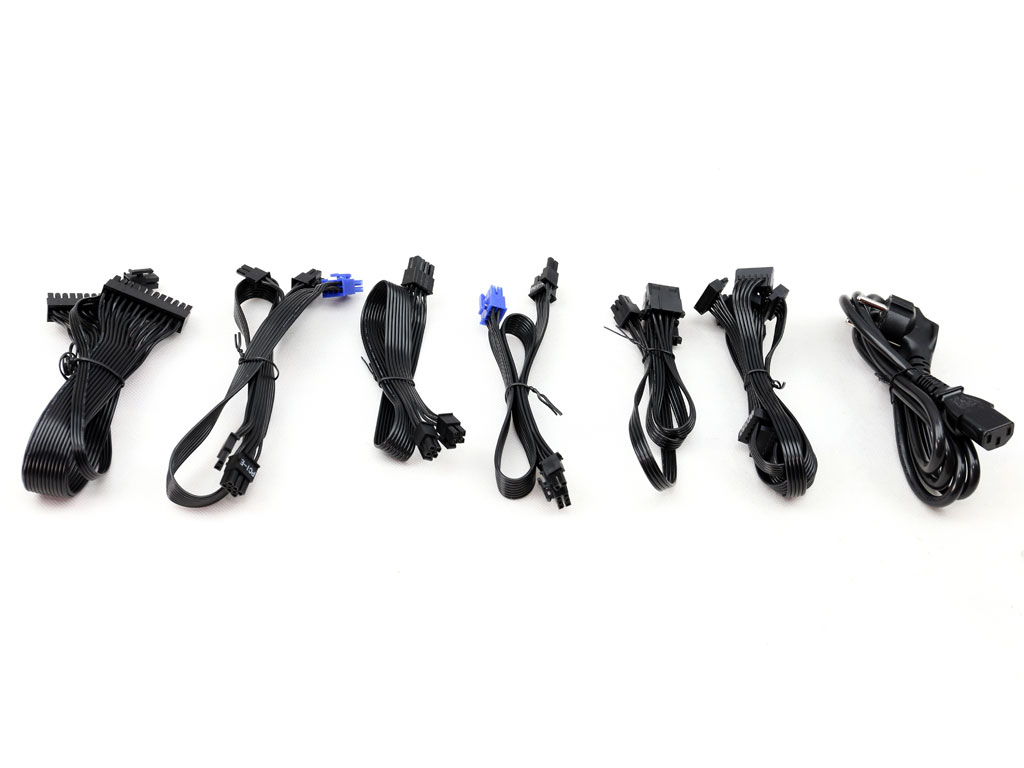
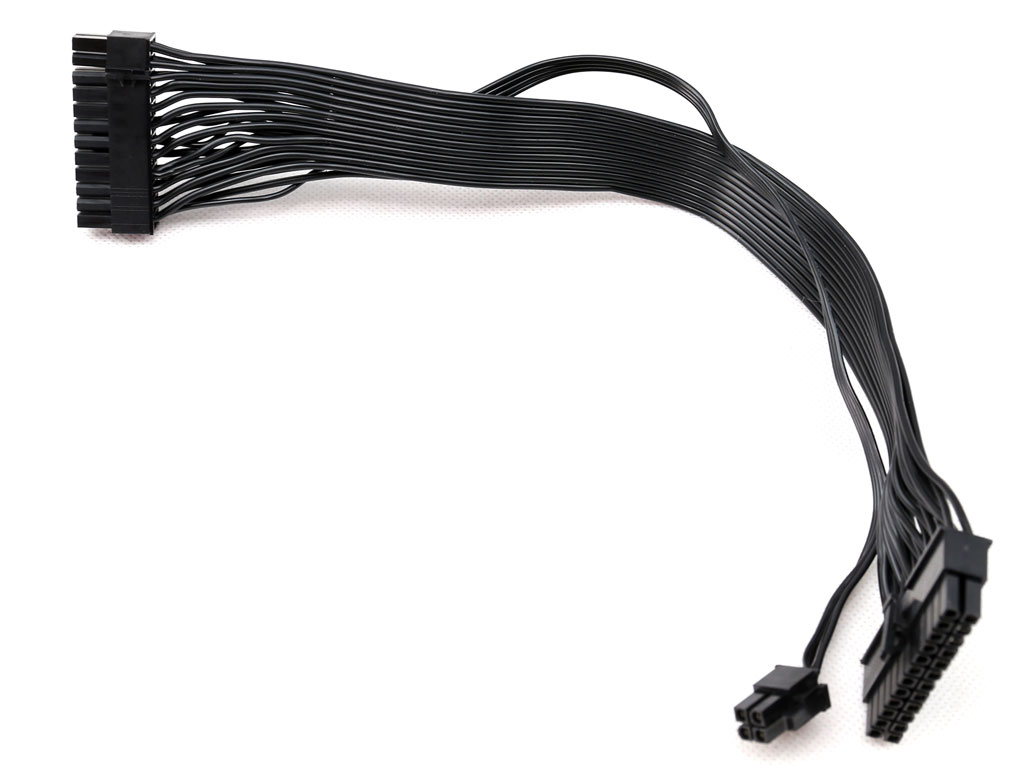
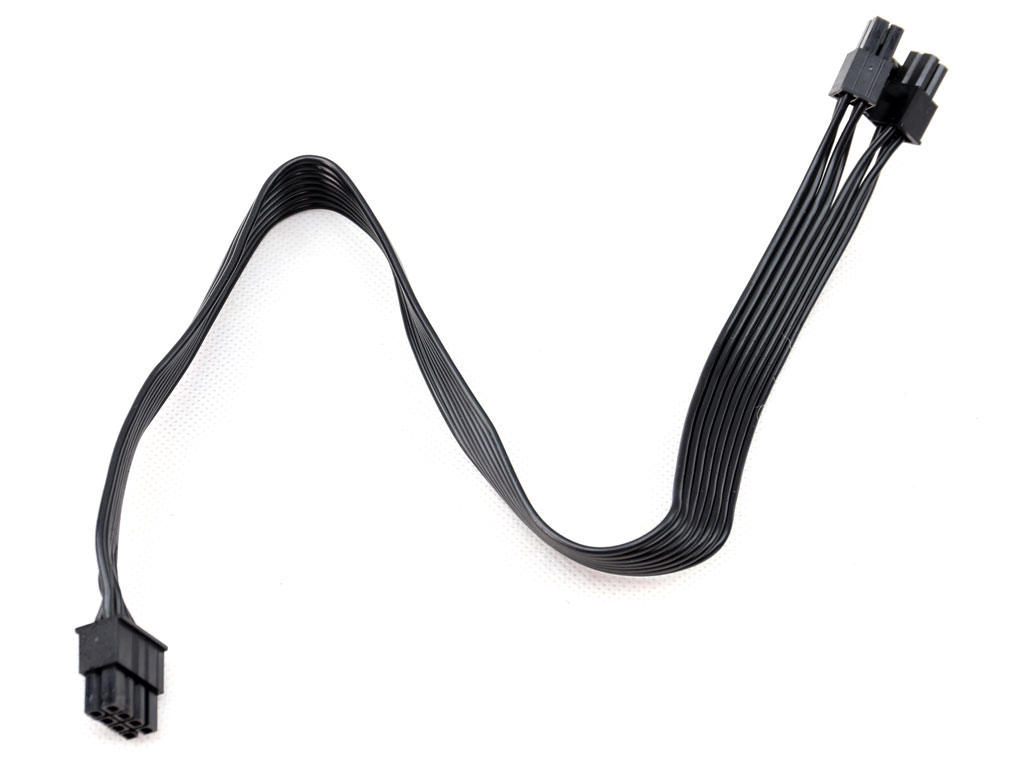
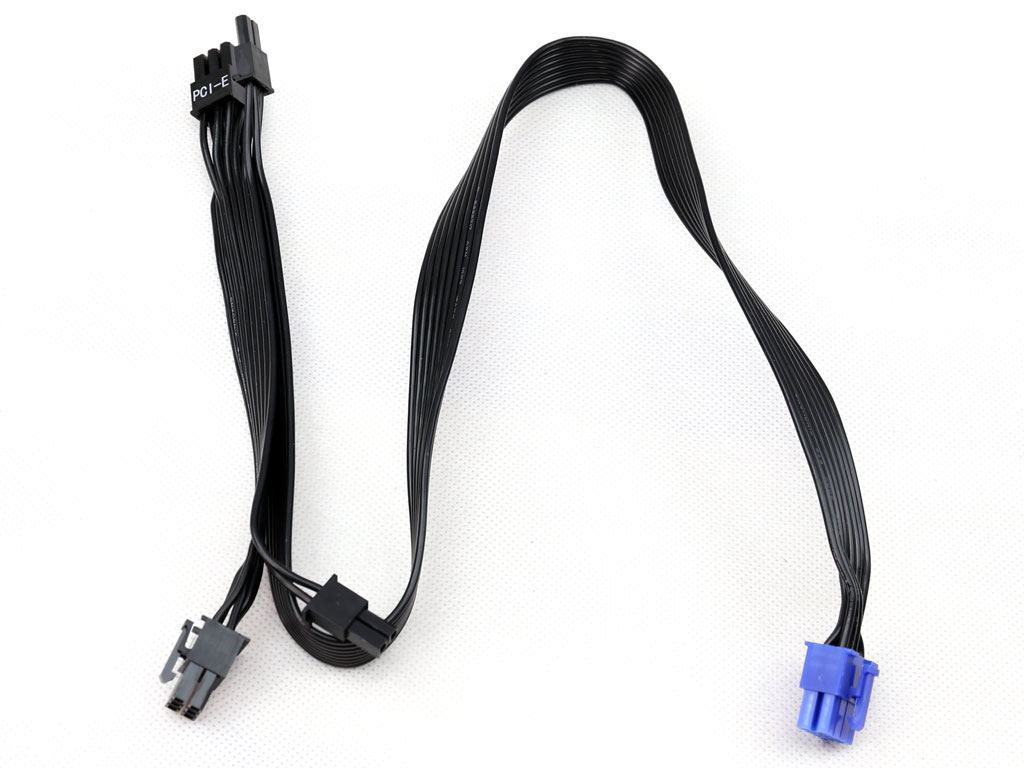
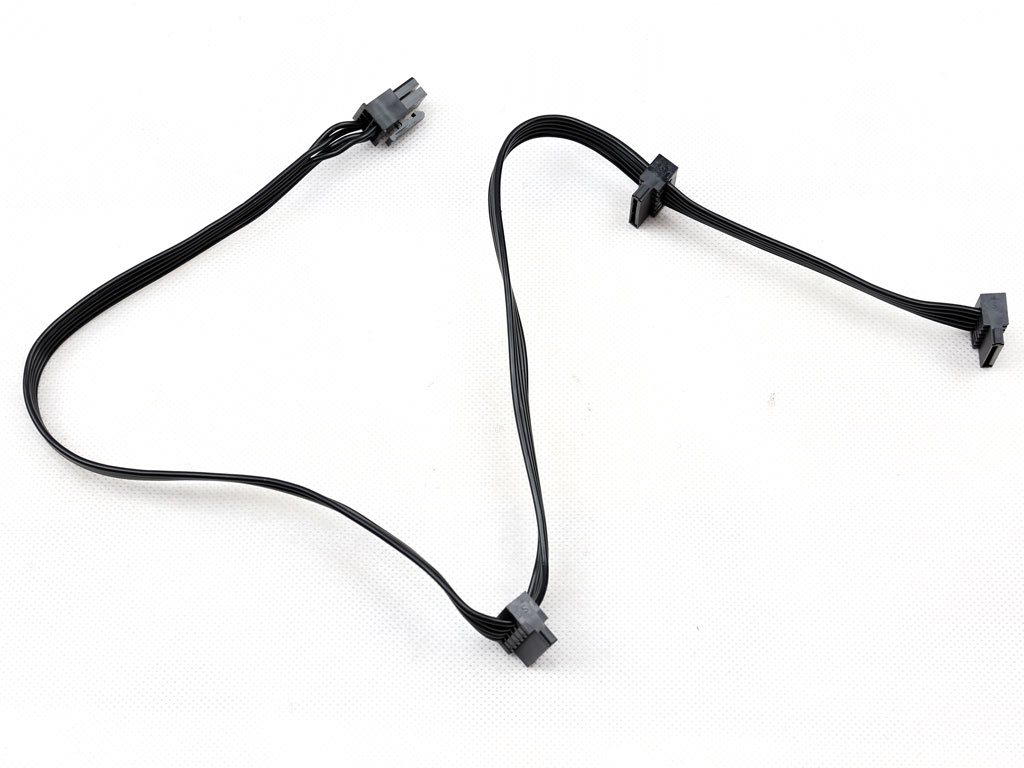
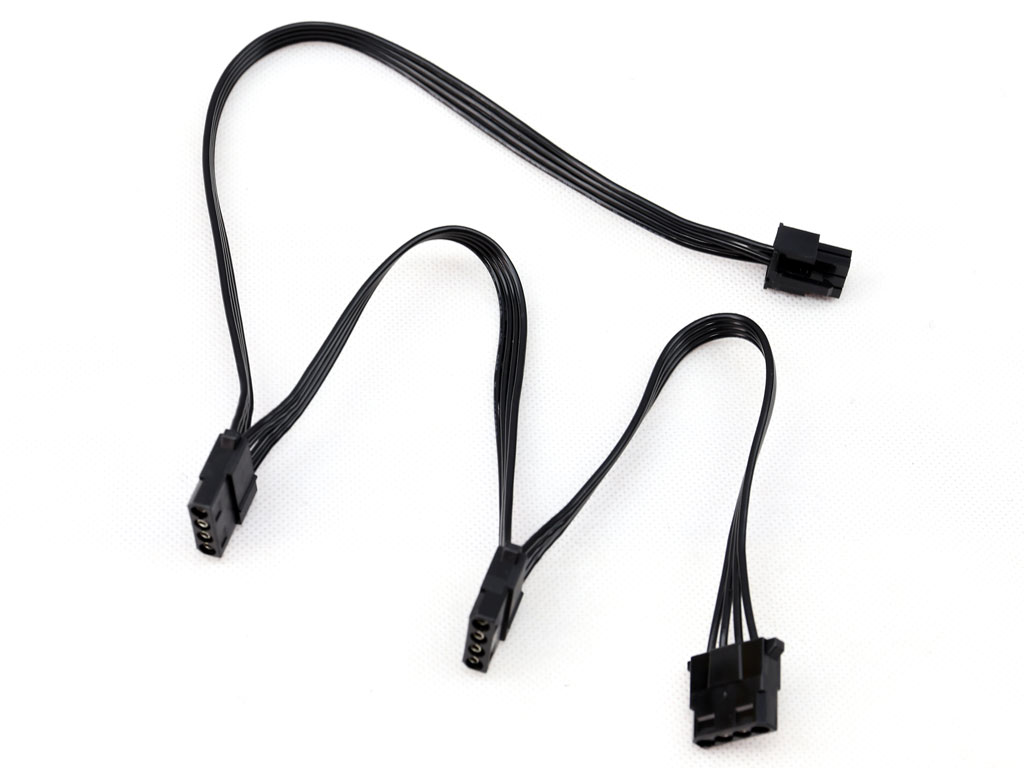
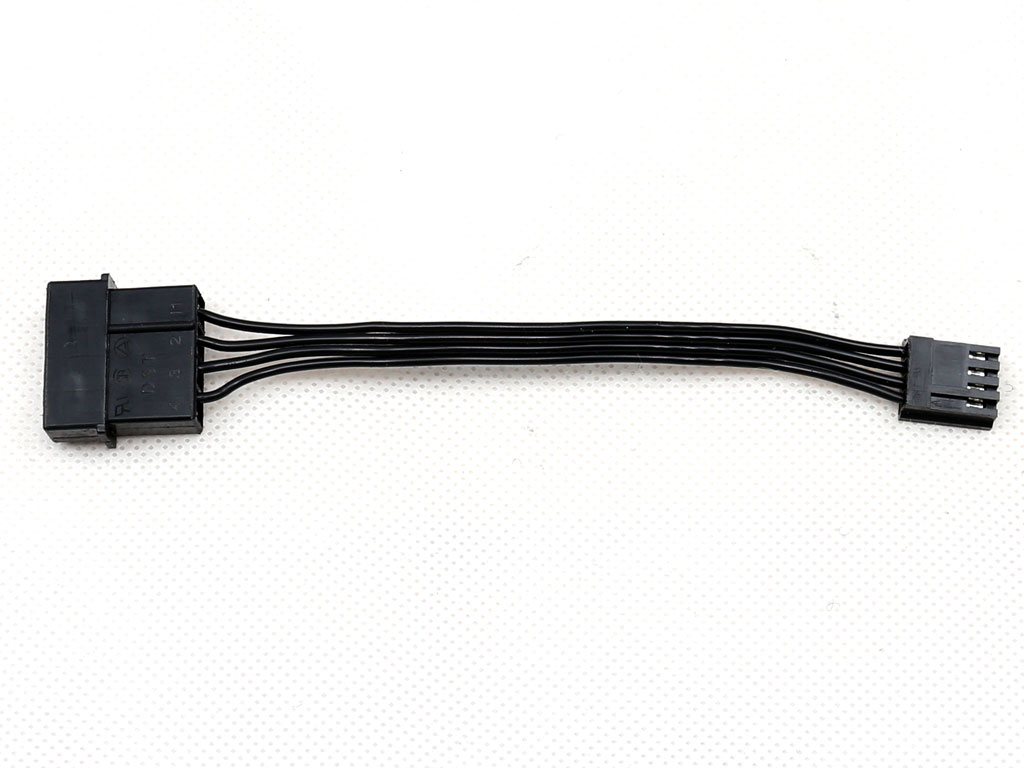
MORE: Best Power Supplies
MORE: How We Test Power Supplies
MORE: All Power Supply Content

Aris Mpitziopoulos is a contributing editor at Tom's Hardware, covering PSUs.
-
termathor Hey,Reply
I'm surprised a PSU with 85 degrees caps *and* only 3 years warranty is given such a good score ... -
jimmysmitty Reply21233248 said:Hey,
I'm surprised a PSU with 85 degrees caps *and* only 3 years warranty is given such a good score ...
What I found interesting is the praise he gives the SF600 here yet the review he did of it gives it the same score as this unit, 7/10.
He also had a ton of cons on the SF600 review that are just, well sorry but some are stupid. No Berg Adapter? Who even needs one of those these days? I doubt this PSU even has a berg adapter.
So why does the SF600 which has better components (105c caps) and a better warranty (5 years) AND performs better apart from a heavier load on the not as used 5v and 3.3v rails causing the fan to spin up rate the same as this PSU?
As mentioned in the article as well its cheaper and the Platinum version is, if you can find it, MSRP $10 bucks more (I found the Silverstone for $20 bucks less than the SF 600 Platinum on Newegg) and it has even better performance, components and a 10 year warranty.
So again, how does this rate a 7/10 like a better PSU? -
crmaris When you criticise that someone talks stupid, you should be extra careful not to fall into the same trap :)Reply
Berg adapter, there are still some people that want it so why not include it? From the moment it is an adapter (so it doesn't alter the modular cables) and only costs some cents.
The final rating isn't up to the performance only! But the overall picture including the product's usability. The SF600 is a great unit but has a major flaw. It only has two PCIe connectors! So you cannot fully utilize its 600W max power. While on the contrary the SilverStone unit has four of them. To give you an example it has exactly the same cable configuration with the SF450.
Please take a better look at the epilogue of each of the reviews and you will get the meaning. The ratings are just a number to provide a rough idea and nothing more. Else I wouldn't bother write so much in the end of each review and list or pros and cons. -
jimmysmitty Reply21233851 said:When you criticise that someone talks stupid, you should be extra careful not to fall into the same trap :)
Berg adapter, there are still some people that want it so why not include it? From the moment it is an adapter (so it doesn't alter the modular cables) and only costs some cents.
The final rating isn't up to the performance only! But the overall picture including the product's usability. The SF600 is a great unit but has a major flaw. It only has two PCIe connectors! So you cannot fully utilize its 600W max power. While on the contrary the SilverStone unit has four of them. To give you an example it has exactly the same cable configuration with the SF450.
Please take a better look at the epilogue of each of the reviews and you will get the meaning. The ratings are just a number to provide a rough idea and nothing more. Else I wouldn't bother write so much in the end of each review and list or pros and cons.
Was not stating that the person was stupid. Just that the con was stupid as the berg connection is not used in the majority of PC products much like how Molex is dying off in favor of the SATA connector. I have not seen a berg connection in a modern PC build for some time.
As for the PCIe connectors, that's a fair "con". Notice I didn't mention it. I don't even think you can buy one like it for Corsairs PSUs and the only one I can think might have had a split single cable was the older CX series although I would personally never use one.
So if we look at cons, then why did the SF600 get "dinged" for not having a ATX adapter but this did not?
BTW I was incorrect. The SF600 has a 7 year warranty not 5. That's more than double, better grade components and cheaper. When I look at a PSU the biggest concern is build quality. Sure it would be nice to have some of the extras but I personally think build quality is the most important part. This PSU has a lower grade build, less warranty but hey it includes an out dated adapter and you can hook up two higher end GPUs to it so it rates the same.
I personally don't feel like the two PSUs are in the same class nor deserve the same rating. To each their own.
Let me clarify my reasoning. I don't want to sound like a jerk. Users will utilize this as a solid rating and a reason to buy or not buy. They wont always read the entire verdict or review.
It is much like Amazon or Newegg reviews. People will look at the average star rating. They wont actually look at the actual reviews and if a product has 1000+ reviews I don't blame them however sometimes you can go into a product and look at the review and see that it may have no bearing on the products actual quality.
Basically having a PSU that has lower performance, lower warranty and lower quality components rated the same as another with better quality will lead people who are not in depth tech savvy people to think they could buy either one and get the same quality.
If you do feel that the rating/score is that unimportant than maybe the end should consist of pros/cons and a verdict with no score? However I do suggest to keep the pros and cons consistent as nicking one PSU for one thing but the other not feels a bit off. -
SilverStone Guy Reply21233924 said:I personally think build quality is the most important part. This PSU has a lower grade build, less warranty but hey it includes an out dated adapter and you can hook up two higher end GPUs to it so it rates the same.
I personally don't feel like the two PSUs are in the same class nor deserve the same rating. To each their own.
In regards to build quality, the SX650-G is no less than that of SF600, besides the bulk cap being lower in temperature rating at 85C (which itself is a high quality brand and part btw, and we do extensive testing to make sure cooling is sufficient for it to last), everything else on the PCB is on par or better. And besides the core components, we've shown over at jonnyGURU, the fan we used in SX650-G is definitely better than SF600. The cables we included are also arguably better quality as well because they are more flexible.
Many people don't realize increasing power output by 50W in SFX at the current 600W+ level is much more difficult of an engineering exercise than for ATX PSUs. I think in some ways this review article is also at fault for marginalizing SX650-G's 50W power increase over the SF600. Our SX600-G was released in 2014 and SX650-G in 2017, so that means it took three years to make an SFX PSU more powerful by 50W (while making it perform better, quieter, with more connectors, etc...) for around the same price! -
jimmysmitty Reply21239216 said:21233924 said:I personally think build quality is the most important part. This PSU has a lower grade build, less warranty but hey it includes an out dated adapter and you can hook up two higher end GPUs to it so it rates the same.
I personally don't feel like the two PSUs are in the same class nor deserve the same rating. To each their own.
In regards to build quality, the SX650-G is no less than that of SF600, besides the bulk cap being lower in temperature rating at 85C (which itself is a high quality brand and part btw, and we do extensive testing to make sure cooling is sufficient for it to last), everything else on the PCB is on par or better. And besides the core components, we've shown over at jonnyGURU, the fan we used in SX650-G is definitely better than SF600. The cables we included are also arguably better quality as well because they are more flexible.
Many people don't realize increasing power output by 50W in SFX at the current 600W+ level is much more difficult of an engineering exercise than for ATX PSUs. I think in some ways this review article is also at fault for marginalizing SX650-G's 50W power increase over the SF600. Our SX600-G was released in 2014 and SX650-G in 2017, so that means it took three years to make an SFX PSU more powerful by 50W (while making it perform better, quieter, with more connectors, etc...) for around the same price!
Ok if you state the parts are equal to or better than a review by the same guy should result in an equivalent or better score correct?
http://www.jonnyguru.com/modules.php?name=NDReviews&op=Story6&reid=533
http://www.jonnyguru.com/modules.php?name=NDReviews&op=Story6&reid=477
Even if you go through the SF600 got better performance numbers throughout, even hitting almost platinum efficiency.
Yes FDB is better. The Corsair is able to run fanless in low loads so its a trade off.
The cables are very objective. These days a lot of people swap the cables out with colored individually sleeved ones.
This review had this that concerns me:
Sky-high OPP and OCP on the 3.3V and 5V rails
Over-temperature protection doesn't appear functional
Not bashing it. Just based on the reviews I found outside of this one show it isn't the same grade as the SF600 Gold unit. If you feel it is truly equal or better then the numbers need to prove it where it counts, the performance. Cables and fans are one side. They don't always outweigh the cons though. I also think that if you feel that way that the warranty should match.
